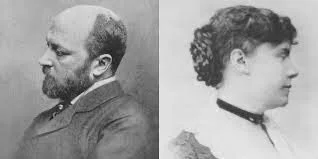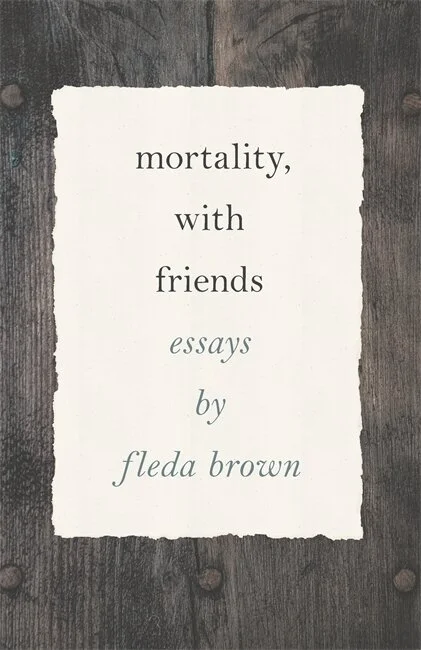Possibly it isn’t this cold. Just seems like it.
It’s pitch black now at 7:00 this morning. And 45 degrees. I did swim yesterday—water 68, air 70. Submerging in the cold water is apocalyptically terrible in a good way, but as always, once I’m in, I feel transcendent for 20 minutes or so. My cancer was small and is now gone. My radiation will be only 2 weeks long. Reason enough right there to feel transcendent.
By the time you read this, we’ll be back in Traverse City, having schlepped a summer’s worth of stuff back with us. It always feels strange, to move so abruptly back and forth between worlds. I’m thinking of Henry James, who so often writes about contrasting European and American temperament. I’m thinking of Henry James because I just finished Colm Tóibín’s novel, The Master. Tóibín researched the heck out of James’s life, then imagined how it would go. He did the same with Thomas Mann (The Magician), which I’m reading now.
Henry James and Constance Fenimore Woolson
Henry James is an interesting study. You may hate his novels, or you may have never read him. I wonder if he’s taught much now. He’s interminably slow, dense, and most of what his characters “do” takes place in their minds. I happen to have liked reading him. Tóibín sees how James’s life is made up almost entirely of hesitancy. He’s clearly homosexual, but never expresses it, maybe not even to himself. He was also deeply attached to Constance Fenimore Woolson (grandniece of James Fenimore Cooper). She was a brilliant novelist, witty and intelligent woman, who had bouts of deep depression. She was clearly in love with James and he clearly cared more for her than anyone in his life. He depended on her in a way. They lived their lives in tandem for quite a while, in adjacent apartments at one point, treasuring their solitude.
But when she had a spell of depression and wrote that she really needed him to return to Venice and be with her, he pushed back, turning cool, possibly scared of the intimacy. She jumped to her death from her fourth story apartment. Tóibín has James fully aware of his role in her death. James burned all their correspondence, when he came to help settle her estate. He couldn’t think how to dispose of her clothes in a way that would be fitting to her character, so he had her beloved gondolier take him far out into the Grand Canal and he dropped them one by one overboard. They started ballooning back up, so he and the gondolier had to punch them over and over to make them sink.
Just like the 19th century isn’t it? And not only for priggish and fearful Henry James. Bury, hold under. Keep a decorous surface. The more decorous, the more genteel. No wonder, I think, we’re deep into an era of blatant exposure. Exposure of body, of emotions, of sexuality. I wonder what will come next. I wonder what changes in the general temperament the awful effects of climate change will cause. If many people will become more empathetic, more accepting, and if divisive politics will be subsumed in the simple need to survive, or if the destruction of large swaths of the planet will turn many people more selfish, more afraid, more prone to build themselves private fortresses.
Probably both.
Here I am, looking out the window at the early morning lake. It’s visible now, all still and shimmery as foil. Sometimes I think I could just live by a lake in the 19th century, pumping water, building fires for warmth, just reading and writing forever. In that way I might be Henry James, except that he wanted his comforts. His manservant. I think I have a primitive heart. I will never forget the rush of exhilaration, of “wild surmise, “I felt standing at the tip of the Upper Peninsula of Michigan, staring out at Lake Superior. Thinking of Keats, and of the word “surmise,” I think it must be the openness that’s so attractive, the not-knowing what’s out there, what will happen next. At times I think the human race may be engineering its destruction, or near destruction, just to feel that breathless sense of not-knowing.
I would think there are better ways, but that’s me.
The launch of Mortality, with Friends went swimmingly. The room was full and there were over 30 people on Zoom. I’m grateful to Brilliant Books for managing this first-ever reading/Zoom reading! The book has been the paperback best seller in Traverse City for two weeks. Write to me with your thoughts about the essays, will you? As I said during the reading, this is a joint effort. Writers don’t write into a void. You’re an important part of this. And remember that I love talking with book clubs, either in person or on Zoom. Get in touch.





